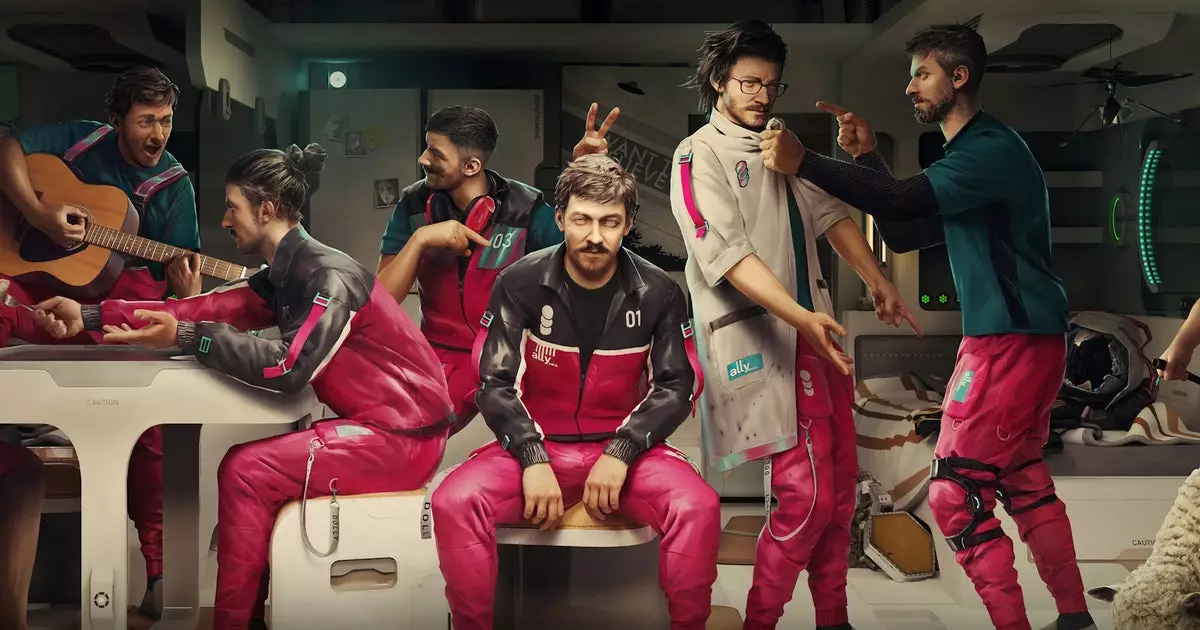The inclusion of artificial intelligence in creative industries has become increasingly common, but it also raises crucial questions about transparency, ethics, and consumer trust. A recent case involving 11 Bit Studios’ sci-fi management sim *The Alters* brings these issues into sharp focus. The studio admitted to leveraging generative AI tools for minor translation/localization tasks and placeholder graphic assets during development—actions that they describe as minimal but nevertheless impactful enough to merit disclosure. Their belated confession, initially absent from official channels like Steam, ignited debate within the gaming community about the responsible use of AI and how developers communicate such practices to players.
The use of AI here, specifically for a small fraction of translated text and as temporary design stand-ins, seems pragmatic on the surface. Pressured by tight deadlines, 11 Bit Studios preferred AI-powered localization to shipping some video dialogues solely in English. While understandable from a logistical perspective, this patchwork approach inadvertently shifted the narrative from one of innovation to one of oversight and unclear communication. The statement that these AI-generated components comprised roughly 0.3% of total in-game text offers useful context but does not excuse the lack of upfront transparency.
The Fine Line Between Efficiency and Authenticity
One of the most compelling aspects of this episode is its confrontation with what it means to create “authentic” gaming experiences. 11 Bit Studios proudly notes their commitment to “meaningful, handcrafted storytelling,” positioning AI as a tool rather than a crutch. Yet, the accidental inclusion of placeholder AI-generated text—meant solely as a work-in-progress during development—exposes the fragility of this distinction. The anomaly, confirmed to be isolated, nonetheless slipped through quality assurance and made it into the final product, undermining the carefully constructed illusion of entirely human-made content.
From an ethical standpoint, this reveals how even limited AI use can blur boundaries in a medium that heavily relies on narrative immersion and player trust. While AI tools can streamline workflows and mitigate extreme pressures—especially during “last-minute” tasks—the risk is allowing AI to quietly infiltrate spaces where human creativity is expected. The developers’ apology and corrective measures are positive steps, but they also set a precedent: if small shortcuts remain hidden, at what point does this acceptance erode the value players place on genuine craftsmanship?
Reevaluating Disclosure Norms in the Age of AI
The situation with *The Alters* also spotlights the evolving culture around disclosing AI integration in entertainment products. Players, much like consumers in other sectors, have a right to know when content has been machine-assisted, even in marginal ways. Valve’s policy requiring disclosure of AI usage aims to uphold transparency standards, yet 11 Bit Studios omitted this information initially—whether by oversight or underestimation of significance remains unclear.
This signals a need for clearer guidelines and industry-wide consensus on AI transparency. Game development is often frenetic, and studios might prioritize release schedules over nuanced disclosure ethics. However, openness fosters trust, encourages informed consumer choice, and can fuel healthy debate on the role AI should play in creative processes. Without such clarity, confusion and backlash are inevitable, as evidenced here.
Balancing Innovation and Accountability
Ultimately, 11 Bit Studios’ experience with *The Alters* illustrates that integrating AI in game development is not inherently problematic, but mishandling its disclosure is. AI’s potential to enhance art and efficiency is significant and should be embraced with creativity and responsibility. The developers’ acknowledgment that they made the “wrong call” by not informing players upfront is a commendable admission, reinforcing the notion that transparency should precede rationalization.
My takeaway is that game developers need to cultivate a stronger culture of accountability around AI—one that treats players not as passive recipients but as engaged participants in the evolution of storytelling. Handcrafted art remains vital, but supplementing it with AI tools must be done carefully, ethically, and communicated honestly to maintain trust in an industry where immersion and authenticity are paramount.

